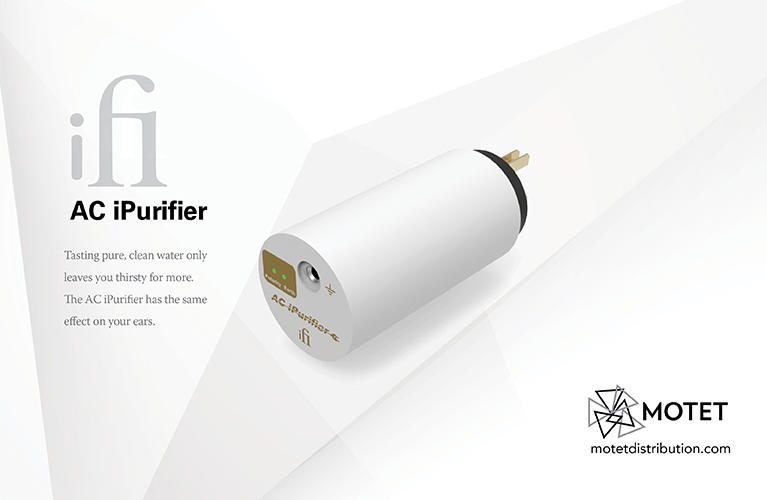Sound: 









Value: 









(Read about our ratings)
Measurements can be found by clicking this link.
Thanks largely to two relatively new companies, Audeze and HiFiMan, planar-magnetic headphones now dominate discussion of high-end headphones. But I’ve owned a set of planar-magnetic headphones for about 20 years and didn’t even realize it until a few years ago. They’re Fostex T20s, which I bought in the late 1990s to monitor mixes of my multitrack recordings of jazz and folk groups. The T20s are still available as the T20RPs. They’re part of Fostex’s pro line, but because so many audiophiles use them, Fostex has released a more consumer-oriented version of its pro headphones, under the model number T60RP ($299.99 USD).
The T60RPs are similar in appearance and design to Fostex’s other pro headphones. The big difference in comparison with Fostex’s most similar model, the T50RPs ($159.99), is that the T60RPs’ rear shells are made from machined African mahogany instead of molded plastic. The T60RPs’ headband also differs -- instead of the T50RPs’ leatherette-covered springy band, the T60RPs have a leather strap that rides atop your head, with a separate spring band to provide the clamping force. This arrangement distributes the weight evenly across your head, taking some of the pressure off the area around your ears.
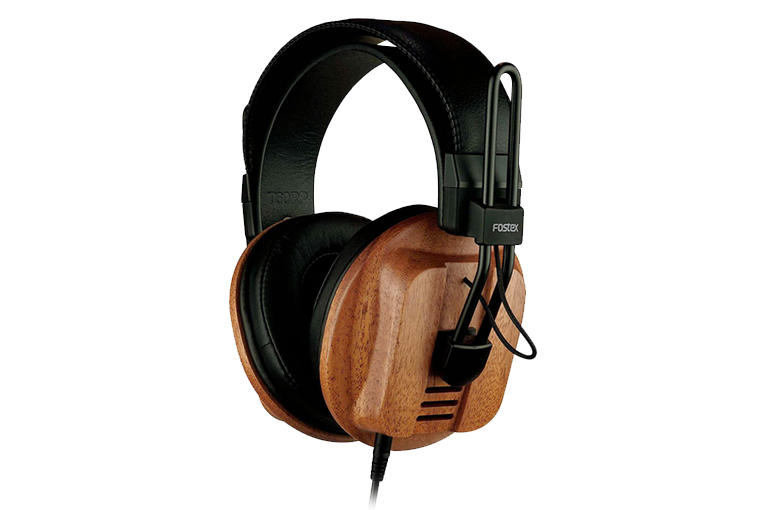
Like the T50RPs, the T60RPs are a semi-open-back design, with vents that are roughly the size of the postage stamps we had before postage stamps got all fancy. The semi-open-back design is a compromise between the airy, spacious sound of a fully open-back model and the superior isolation from environmental noise that a closed-back model provides.
Basically, the T60RPs seem to be a dressed-up version of the T50RPs, but that’s probably all they need to be to establish themselves among audiophiles looking for a reasonably priced set of high-quality planar-magnetic cans.
In the box
Fostex keeps things simple with the T60RPs -- all you get are the headphones, a manual, and a detachable 4.9' (1.5m) cable tipped with a 3.5mm plug at each end. Fostex offers three optional balanced cables for the T60RPs, tipped with your choice of a 2.5mm, 4.4mm, or four-pin XLR connector.
Use
The T60RPs are a welcome relief from typical large audiophile headphones, many of which are rather heavy and/or employ strong clamping force on your head. The T60RPs sit lightly, with moderate clamping force that’s just enough to get a decent seal.
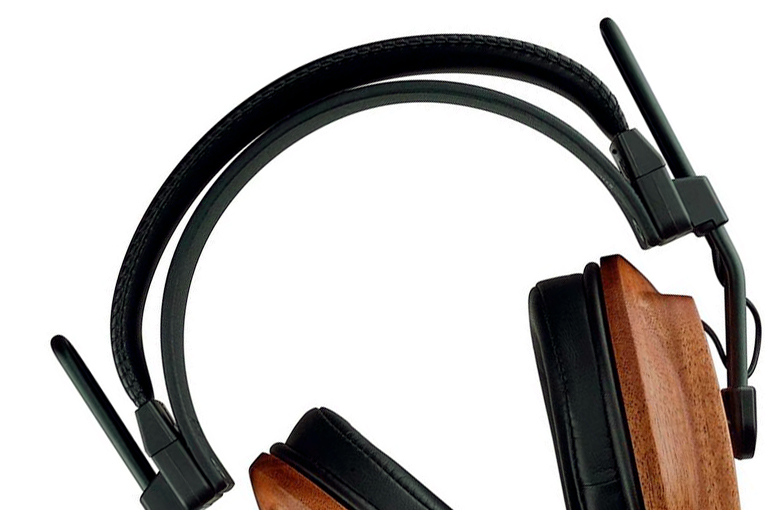
At a rated 92dB sensitivity with a 1mW signal, the T60RPs need more power than many portable devices can produce, although I was able to get a just-listenable level playing classical music from my Samsung Galaxy S9 phone through them. Plan on using these with a high-quality portable player or a separate headphone amp or DAC-amp -- especially if you plan on using them in a moderately noisy environment, because their semi-open-back design doesn’t block much environmental noise.
The only real ergonomic downside to these headphones is that I found their cable unusually microphonic -- it made loud scratching sounds as it rubbed against my clothes. But that’s probably not a big concern in headphones designed for sedentary use in a home or studio.
Sound
Overall, the T60RPs sound much as I expect good, low-cost planar-magnetic headphones to sound. They deliver a much better sense of space and more detail than most mass-market closed-back headphones do, and they sound essentially flat from about 500Hz on up, although the bass can be a little light at times.
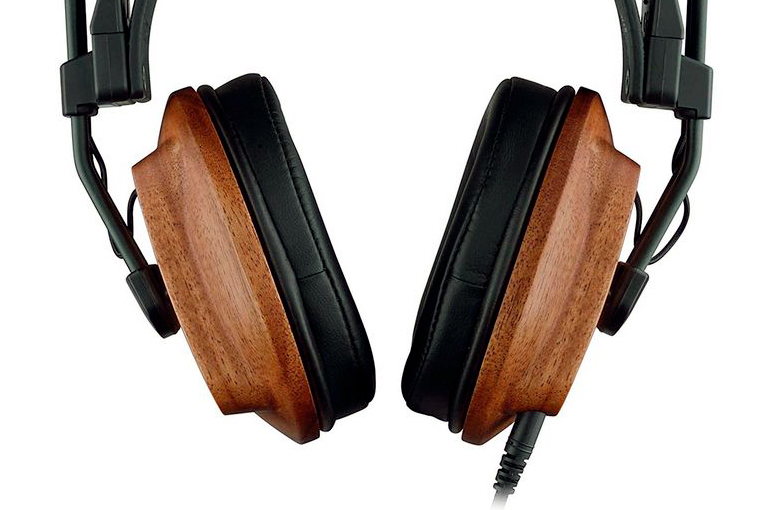
I always listen to a couple of Chesky Binaural+ recordings when I review headphones because they immediately reveal headphones’ spatial characteristics. Through the T60RPs, “Smoke Signs,” from singer/songwriter Melissa Menago’s Little Crimes (24-bit/96kHz AIFF, Chesky), a recording of a small, quiet group (acoustic guitars, percussion, and vocals) in a large, reverberant space, sounded more spacious and airy than it did through even a very good set of mass-market headphones such as the Sony WH-H900Ns. Menago’s voice sounded natural and largely uncolored, with just a trace of sibilance, and the T60RPs’ exceptionally clear treble really brought out the guitars and percussion (which is pretty quiet, but I think it’s a cajon). On “Smoke Signs,” the T60RPs’ somewhat restrained upper bass brought out more of the slap in the percussion because the bass resonance of the (probably) cajon wasn’t as evident as I’ve heard from many other headphones.
Veteran Los Angeles jazz drummer Paul Kreibich’s Thank You Elvin (16/44.1 WAV, Blujazz Productions) is, like Little Crimes, a largely unprocessed recording with no overdubs, although it was made using a separate microphone on each instrument instead of the single binaural microphone Chesky now uses for its recordings. The T60RPs revealed that a lot of thought went into capturing Kreibich’s drum sound; every drum and every cymbal sounded super-clear and natural -- with the sole exception of the ride cymbal, which sounded more forward and prominent than it does through most headphones. I guessed that the T60RPs had just a couple dB more energy above 5kHz than most headphones do, although I never got the feeling that they sounded bright. The bass balance sounded about right, although it did sound a little less clear and boomier than I heard with most of the other headphones I’ve reviewed recently.
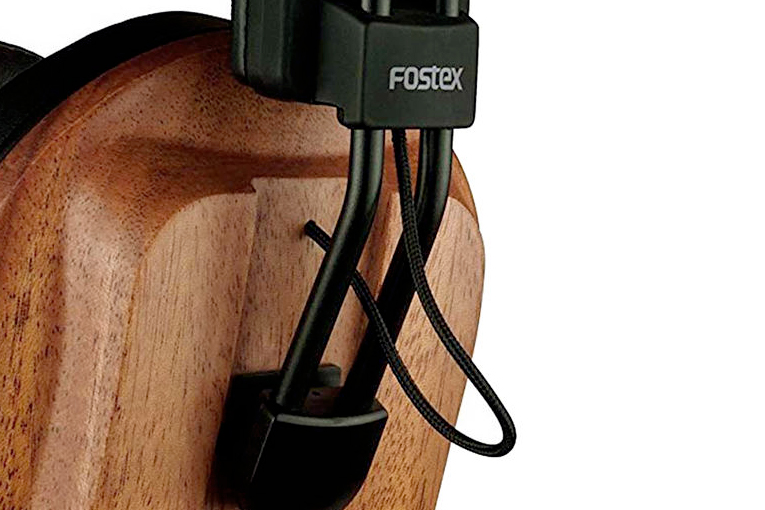
Hip-hop artist Luke Christopher’s “Prefer the Rain” (single, 320kbps Ogg Vorbis, ByStorm Entertainment / RCA / Spotify) is about as far as it could be from the Melissa Menago and Paul Kreibich recordings -- a recording where the only natural sound is Christopher’s voice. Like most hip-hop mixes, “Prefer the Rain” consists of a rap backed by monotonic deep bass notes and drum samples mixed with the classic Roland TR-808 drum machine hi-hat sound you’ve heard literally a thousand times before. But there’s also an unusual element that audiophiles will love -- it starts with the sound of a Japanese-language program playing over a table radio in the background. It sounds like the radio effect is 180 degrees out of phase from the right channel to the left, which puts it more or less behind and above your head. On very spacious-sounding headphones, the effect will have you wondering if a radio suddenly came on behind you. The T60RPs did a pretty good job on this, although they didn’t achieve the almost-scary effect that some larger open-back models can achieve.
The level of the deep bass tones on “Prefer the Rain” seemed about right relative to the other elements in the mix, but I noticed that the deep notes sounded a little distorted relative to the other headphones I compared to the T60RPs. A few other R&B cuts I played confirmed this. I didn’t notice the distortion on most of the music I played; it seems to be below the deepest tones on most music recordings, which are usually around 40Hz. So it’s probably not an issue unless you’re a big fan of Kanye West or pipe organ virtuoso Michael Murray. (But if you happen to be a big fan of both West and Murray, better find some different headphones.)
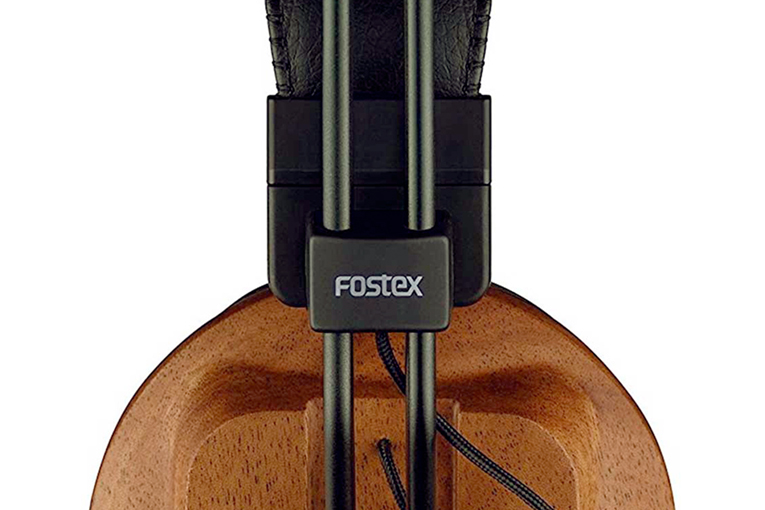
Curious to see how Fostex’s sound has evolved over the years, I pulled out my old T20s -- still quite functional after all these years (and several cable replacements) -- and shot them out against the T60RPs. I was a little surprised, yet delighted, to hear that the two sounded extremely similar despite being two decades apart in age. On both, Holly Cole’s Holly album (16/44.1 WAV, Universal Music Canada) sounded wonderful, with natural-sounding double bass notes, a nice sense of space, and maybe just a slight emphasis in the upper harmonics of Cole’s voice. The only notable difference I heard was that the T20s’ bass sounded a little boomier; I wonder if the reduced resonance of the T60RPs’ wooden backs, relative to the T20RPs’ plastic backs, had something to do with that.
Comparison
I also ran the T60RPs past my usual listening panelists: John Higgins, who holds a master’s in music performance from USC and has served as a frequent contributor to Wirecutter and Sound & Vision, and LeRena Major, a Los Angeles saxophonist who’s held several positions in the music business and is a voting member of the National Academy of Recording Arts & Sciences.
Regular SoundStage Solo! readers may realize that of our usual listeners (including me), John is usually the most restrained with his praise, which is why I was surprised to see a big smile on his face when he listened to the T60RPs, and to hear him exclaim “I like these!” when I asked him his opinion. “There’s a little too much top end for me, and the bass is a little bit light, but on most of the music I listened to, the balance was just about right. They’re comfortable, too, and lighter than I expected.”
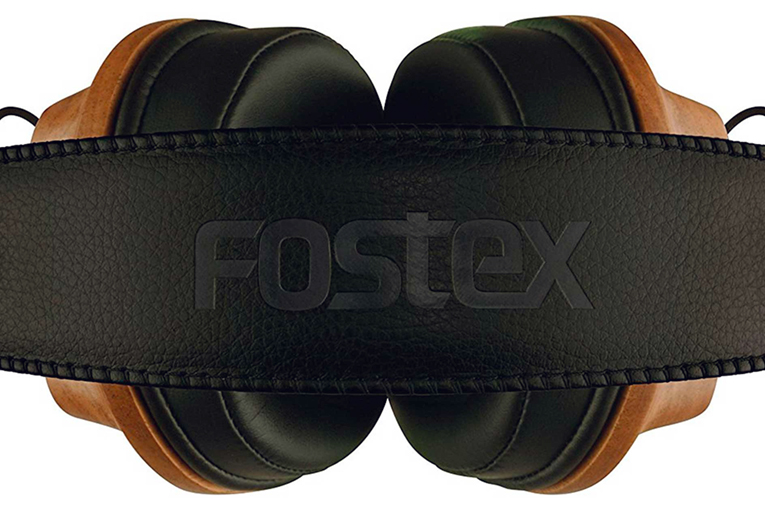
But LeRena -- a huge fan of mainstream pop music, and Prince in particular -- wanted more bass. “The midrange had a nice, rich sound, but the low end wasn’t happening as much,” she said. “I felt like I needed to turn them up louder.”
The T60RPs have a lot of competition among open-back or semi-open-back models, including the HiFiMan HE400i’s (which list for $449 but are usually available for less than $250), the Monoprice M650s ($149.99), and the Sennheiser HD 600s ($299). The T60RPs fall roughly in the middle of this group. They’re more spacious and detailed-sounding than the M650s or the HD 600s, but their sound isn’t as robust and full as those headphones deliver. The T60RPs sound less spacious and detailed than the HE400i’s, but have a fuller and more dynamic sound.
Conclusion
There are quite a few audiophile-grade open-back and semi-open-back headphones in the $300 price range. Most are quite good, and choosing among them is mostly a matter of personal taste -- do you want a more trebly, detailed, spacious sound, or a fuller, more dynamic sound? The T60RPs strike one of the most natural and versatile tonal balances of the models we’ve tried in this price range, with none of the ergonomic downsides that some competitors suffer.
. . . Brent Butterworth
Associated Equipment
- DAC -- Musical Fidelity V90-DAC
- DAC-headphone amp -- iFi xDSD
- Headphone amp -- Audio-gd NFB1-AMP
- Smartphone -- Samsung Galaxy S9
Fostex T60RP Headphones
Price: $299.99 USD.
Warranty: One year parts and labor.
Foster Electric Co., Ltd.
1-1-109 Tsutsujigaoka, Akishima
Tokyo, Japan 196-8550
Phone: +81 42 546 4974
Website: www.fostexinternational.com



